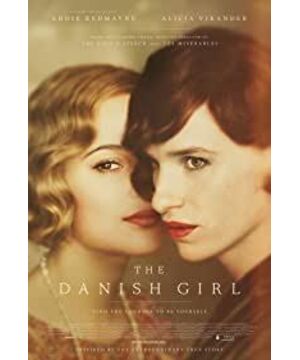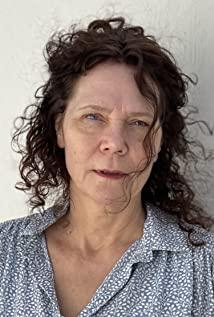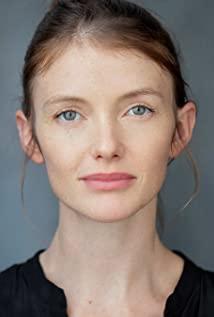In fact, I had a hunch that this would not be a film suitable for watching on a relaxing and leisurely trip, but I didn't expect such a deep depression. I've always been familiar with the Danish Girl director Tom Hooper, an orthodox academic, the type of director favored by the Oscars who is good at narrative, from serious subjects like "The King's Speech" and "Les Miserables" to some audiences. The verbose style can be seen.
It's a good movie, but not my type. Quite simply, for no reason, there is no magnetic field. But still, it's a good movie by any measure.
Little Freckle's deep and restrained acting from the orthodox method school has surpassed too many of his peers, even some A-listers who have been in Hollywood for many years (even if some of them have gone too hard). What surprised me in this film, however, was another actor, the Swedish actress Alicia, who played Einar's wife. In fact, I have seen her play, Joe White's version of the ridiculous Anna Karenina, and a movie called Royal Merry (I only saw a part of this), and I didn't leave a deep impression, maybe because She looks rather petite. But in this film she plays Gerda, the daring and talented wife. Inadvertently draws out the female personality in her husband's body, and then gradually loses her lover's powerlessness, mental breakdown, chooses understanding and support, and bears the pain alone, and her mental journey is very pleasantly completed. Basically, it can be regarded as her going abroad and stepping into the foundational work of Hollywood. If she intends to operate it, the nomination for Best Actress will definitely fail.
Speaking of the movie, what impressed me most is undoubtedly the echo of the beginning and the end. The film begins with a few still empty shots, and then quickly enters the storyline, so the audience forgets to start the baffling opening. At the end, the male protagonist (or should we call her the female protagonist?) died due to the rejection of the second operation, and his wife built his tombstone in his dream hometown, which is the dreamy one in the empty shot at the beginning. Mountain and water.
The fact that "people" are "people" stems to a certain extent from self-recognition as "people". How much of the birth of "gender" came from biology and partly from sociology. Few people can give a definite answer. The film doesn't delve deeper into thinking, it just tells a story that tries to get some people to understand something they couldn't otherwise: why would someone die for something that doesn't make sense to them? Is the point of "who am I" really meaningless?
View more about The Danish Girl reviews











